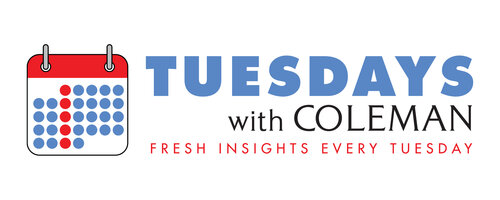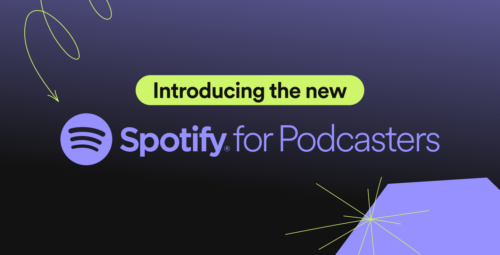
As I reflect on the past week in Las Vegas at the Podcast Movement Evolutions conference, I’m thinking about two recent announcements that will have a significant impact on the podcasting industry. The first announcement, made the week prior at the Hot Pod Summit in New York, was revealed by YouTube’s head of podcasting, Kai Chuk.
YouTube will begin featuring audio and video-first podcasts on its YouTube Music platform.

The level of YouTube’s prowess for podcast consumption and discovery and this move was widely buzzed about in Vegas. For many podcasters, how to utilize YouTube effectively is a conundrum. Unlike audio-only platforms like Spotify and Apple Podcasts, YouTube cannot pull your show in with an RSS feed, which automatically populates artwork and show notes, and results in the user-friendly displays and players you see on audio platforms. Therefore, podcasting on YouTube can be a clunky, manual process. Discovery can be difficult and sorting chaotic. Because there’s no RSS feed, podcast analytics are a challenge, and thus monetizing becomes a pain.
Within this context, YouTube’s move makes sense. By offering podcasts on YouTube Music, it will pull in RSS feeds and should be easier for podcasters to set videos as podcasts on YouTube Studio. But YouTube’s biggest challenge has nothing to do with easing functionality for podcasters and listeners.
It faces a massive branding challenge.
According to Viralyft, YouTube has over 2.68 billion active users globally as of September 2023. YouTube Music just surpassed 80 million subscribers. YouTube is where podcast listeners are. YouTube Music is where they want them to be. In theory, it will create more paid subscribers for YouTube Music and it will offer an ad-supported version if you don’t want to pay for it.
But YouTube Music is not a podcasting platform today. It never has been. It has “music” in the name and will attempt to grow using a spoken-word medium. It will take an immense effort to educate consumers of YouTube Music’s new role as a podcasting platform, one with no guarantee of succeeding. It may be challenging to improve the podcast experience on YouTube, but that feels like the more logical branding play. YouTube Music as a podcasting platform will start as a weak brand in the podcasting space, and we won’t know the quality of the content until its planned launch.
Anchor, one of the top podcast hosting platforms, was acquired by Spotify in 2019 and it benefitted from the unique new show boom that was fueled during the pandemic while people were at home. The number of active podcasts inflated. One of the things that supercharged Anchor’s growth was the fact that it was, and remains, a free hosting service and attracted beginners. This is in contrast to the $15 or so monthly fee that most hosting platforms charge to house your podcast, distribute to multiple players like Spotify and Apple Podcasts, and provide a level of analytics.
Then, all of a sudden last Wednesday at Spotify’s Stream On event, the company announced it would change the name of Anchor to Spotify for Podcasters. If you do a Google search for Anchor podcasts, you may see Anchor in the listing but you’re redirected to podcasters.spotify.com with a long explanation of why Spotify for Podcasters will be better. Among those improvements include the ability to upload video podcasts to Spotify and more advanced analytics.

Just as time will tell if YouTube’s launching of podcasts on YouTube Music will work, we’ll have to see how Spotify’s dropping of the Anchor (sorry, too easy) plays out. The company didn’t spend time leading up to the change educating and informing consumers it was coming. Many users will be confused when greeted with the new name. Spotify is a podcasting player, not a hosting platform for podcasters. Its challenge will be to convince current users to stay, as well as educate consumers about Spotify’s new role as a hosting platform.
In time, both initiatives may succeed but each will be undeniably difficult. Changing brand perceptions to influence consumer behavior is one of the most difficult tasks a marketer will face. We look forward to watching both closely.
